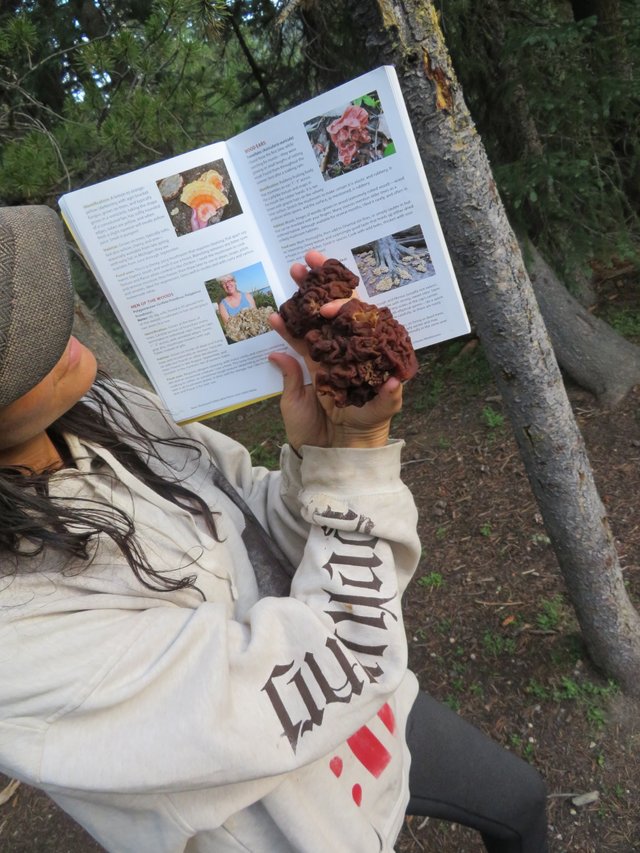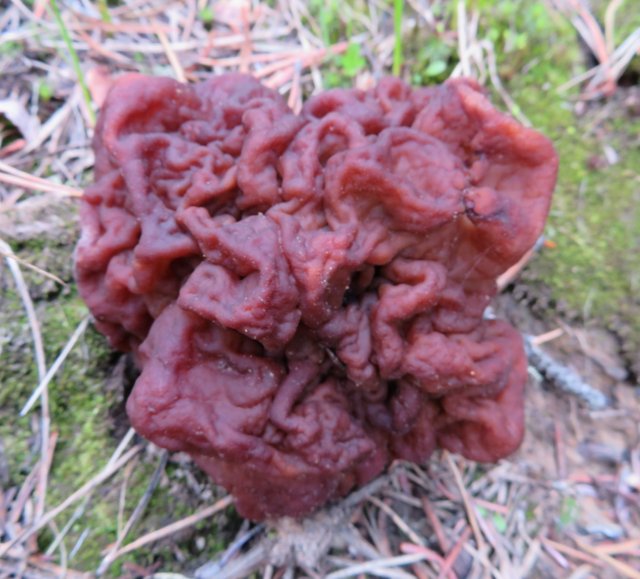A little over a week ago, I was up in the mountains with my foraging books and found a mushroom...the mushroom you're posting about (I believe), but the funny thing is, my foraging book, "Edible Wild Plants and Useful Herbs: A Falcon Guide," listed the Wood Ear mushroom on the forager's dozen mushrooms...and the picture looked JUST like the False Morel! Yikes! Here's a picture of me comparing the mushroom I found to the picture of the mushroom in their guide. MOREL of the story, be careful, do the research, and give thanks to informative posts like this one! 
RE: The Amateur Mycologist #12 - Gyromitra esculenta - The False Morel
You are viewing a single comment's thread from:
The Amateur Mycologist #12 - Gyromitra esculenta - The False Morel
Another view of the the mushroom in question...wood ear or false morel?
Downvoting a post can decrease pending rewards and make it less visible. Common reasons:
Submit
I can understand why there would be some confusion - a really large woodear/jelly ear mushroom can get pretty crinkly and share some of the overall look of the false morel.
However, I feel pretty confident that the mushroom pictured above is a false morel and not a woodear.
Three important observations should clear it up:
where was it growing. It looks like it was growing on the ground as opposed to sprouting from a rotten piece of wood or a tree. +1 false morel
Does it have a stem? I can't tell in the photos but if i had to guess I'd say there is probably a rounded, somewhat mishapen, more lightly colored stem underneath that cap. Jelly ears can sometimes have a little stem sort of thing, but usually they are stemless.
Showing a picture of the entire mushroom cut down the middle, from cap through stem, if its there, might also help.
Plus in your first picture i think i see pines in the background which would further support false morels as they tend to enjoy coniferous forests and mountainous areas (if this was, as your namesake suggests, in Colorado
Downvoting a post can decrease pending rewards and make it less visible. Common reasons:
Submit
Yes, it was in Colorado, and I too believe it was a false morel. It was on the ground, but without much visible stem. The problem is, I and all those who were with me, believed it looked exactly like the picture shown in the guide for a wood ear (which could be dangerous for others). :/ I'm thankful Steemit has a resource like yourself to help nail the details!
Downvoting a post can decrease pending rewards and make it less visible. Common reasons:
Submit